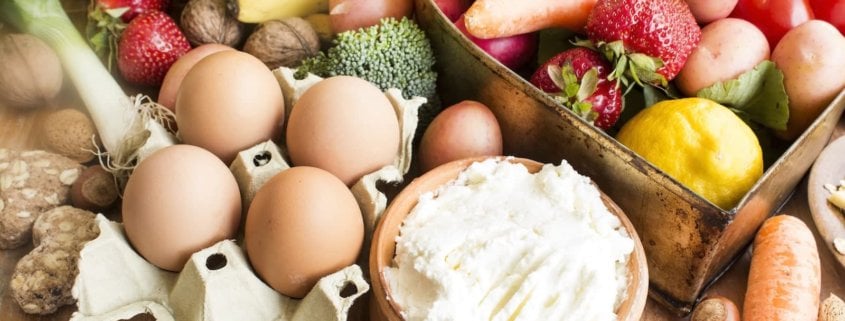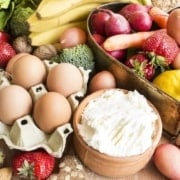B-Vitamins and The Best Whole Food Sources
Reading Time: 4 minutes
People who are following a plant-based diet often overlook their intake of B-Vitamins. But while many people focus on protein and calcium, these vitamins are essential as this group has a direct impact on your overall health from your heart, mood, to your digestion. These vitamins are used up for the production of healthy red blood cells, and they are also used to maintain the function of the cardiovascular and nervous system.
Why Is Food Important for Your Daily Dose of B-Vitamins?
B-Vitamins are essential to the body as this group of vitamins is used for the different physiological functions of the body. They are naturally found in food, and they are water-soluble except for Vitamin B-12. Aside from being water-soluble, these vitamins are destroyed by heat, so foods that are overcooked and highly processed contain lower amounts of B-Vitamins.
Foods That Contain High Amounts of B-Vitamins
Eating a nutritious and well-balanced diet is the best way to get your daily dose of B-Vitamins except for Vitamin B-12. Unfortunately, Vitamin B-12 is obtained from bacteria in the soil and the condition of our soil today is getting more impoverished due to intense synthetic agricultural practices. B12 can be found in a few plants and NutriFusion has developed a process to concentrate and stabilize naturally occurring B12, which once believed to be unobtainable in whole food sources. While you can get B Vitamins from eggs, milk, and red meat, plant sources are the best as you can also get other benefits such as antioxidants. Below are significant plant-based, whole food sources of for B-Vitamins.
- Seeds: Seeds such as chia, flax, sesame, sunflower, amaranth, and pumpkin to name a few are excellent sources of B-Vitamins such as Vitamin B1 (thiamin), Vitamin B2 (riboflavin), Vitamin B5 (pantothenic acid), and Vitamin B9 (folate).
- Vegetables: Vegetables such as broccoli, sweet potatoes, leafy greens, leeks, and cauliflower are good sources of folate. Folate is necessary for synthesizing new cells as well as supporting both the immune and nerve functions.
- Fruits: Fruits like avocados, bananas, dates, and figs are good sources of Vitamin B6 that is necessary for nervous system functions. They are also rich in Vitamin B5, which plays a prominent role in converting food into energy.
- Beans and legumes: Beans and legumes contain high amounts of B-Vitamins except for Vitamin B12, so you get a lot of benefits eating them. Plus, they also provide high amounts of fiber for proper digestion.
- Grains: Grains are some of the best sources of B-Vitamins except for Vitamin B12. Eat barley, brown rice, and wheat germ as much as you can to get your daily dose of B-Vitamins.
Is B-Vitamin Deficiency Dangerous?
Contrary to what most people think, a deficiency in B-Vitamins can spell serious health problems such as anemia, constipation, heart problems, brittle nails and hair, lack of appetite, and poor digestion. And since B-Vitamins also affect the mood of individuals, people who lack these essential nutrients may also suffer from depression, fatigue, poor memory, confusion, moodiness, and anxiety. With the many effects of B-Vitamins deficiency, it is important to know which foods great sources are so that you always get your daily dose of this important and highly underrated group of vitamins.
Inspired by www.onegreenplanet.org
GrandFusion Concentrates Plant-Based B-Vitamins For Food Industry
Did you know that NutriFusion developed a process to stabilize and concentrate the naturally occurring vitamins in fruits and vegetables into powder form? With the GrandFusion product line, food and beverage manufacturers can easily add essential micronutrients to their products without impacting the flavor or texture of the end product. Interested in learning more? Download our GrandFusion R&D kit to get started!




